#senegence for men
Text

Father’s Day is coming soon! Pamper Dad this year with skincare that will keep him looking and feeling his best!
How about skincare from SeneGence for Men?
This collection is the perfect gift for Dad!
Shop Here: https://senesite.senegence.com/jeri/shopproducts/17/men
#fathersday#senegence for men#liquidmakeup#senegence#lipsense#jeri taylor-swade#getlips#jeritaylorswade#homebasedbusiness#makeup#senegenceinternational#lipboss#cuppawiththequeen#cuppa with the queen#cuppawiththequeenquotes#firstqueenofsenegence#direct selling#direct sales#shadowsense#mua#senegenceskincare#entrepreneur
0 notes
Text



164 notes
·
View notes
Text
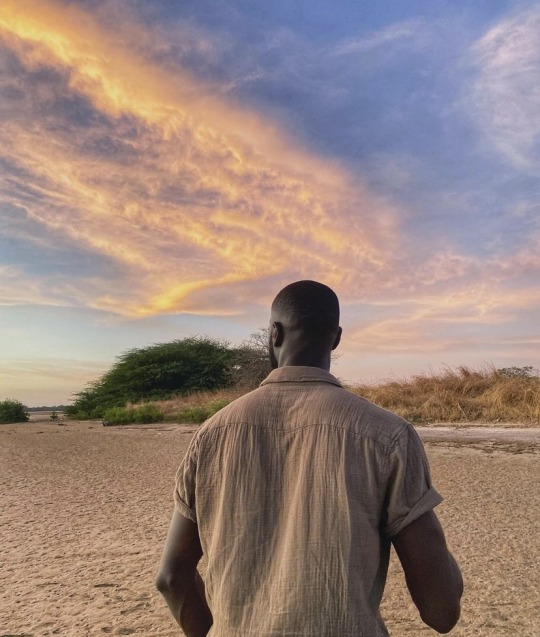
by thierno__gueye
1K notes
·
View notes
Text
https://x.com/TajMarie17/status/1701713731757994180?s=20
I pray that we see some development(s) within the reparations space within the next year or so, so our so-called Black Media outlets can stop promoting scam artists like Akon for clicks and views.
@blackenterprise
, do better.
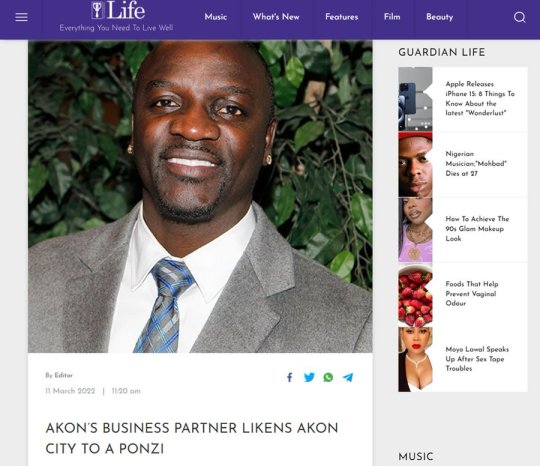

With a net worth estimated at $60 million, Akon knows all the tricks to acquire wealth. What’s his secret? It’s to “stay stingy.”
The Grammy-winning singer was a guest on Logan Paul’s “Impaulsive” podcast, where he shared his personal secret to financial longevity. According to the Senegalese musician and entrepreneur, frugality is key.
“Listen, you want to stay rich? Stay stingy,” Akon said. “I’m the stingiest muthafu*ka on the planet.”
The “Locked Up” singer went on to explain why, unlike his peers, he avoids traveling by way of private jet and opts for a commercial flight like the rest of us common folks.
“Any person of my caliber is not flying commercial. These dudes is flying jets all day,” Akon said. “I attempted to own a jet. That sh*t lasted six months. I sold that muthafu*ka so fast. You have no idea [of the upkeep costs]. I promise you.”
Instead, Akon says, renting a jet works, and you can always negotiate a lower rate.
“Buy some hours and use it only when necessary. And most of the time, use it as a way of negotiation. Let that be a part of your strategy to the money. But whatever you do, do not own a jet,” he advised.
“Bro, owning a jet is spending at least $2-3million a year just on upkeep. You spend more on the maintenance than the actual jet costs.”
The interview took place one month after Akon admitted to wearing fake designer clothes during his appearance on “Drink Champs.” Indeed, fans took notice of the “Drio” shirt he’d been wearing.
While hanging out with French Montana shortly after his “Drio” made waves, Akon credited his fake Christian Dior drip to supporting his local Africans.
“The Drio came from one of my Africans,” Akon told French. “I’m always supporting my Africans. We go hard for each other. I knew that sh*t was gon’ raise engagement. It only take one person to notice, and it’s gon’ go crazy on the internet and it did exactly what we wanted it to do.”
Akon took to the comments section to further laugh at his fake designer togs while shouting out the Senegalese community in Harlem.
“Promised my Africans I was going to represent for them with that DRIO,” he wrote. “Kept my word. Shouts to lil Senegal in Harlem. Walla Bok!!!!!”
RELATED CONTENT: Akon Still Believes In Akon City
#Akon Breaks Down The Secret To Maintaining Wealth: ‘Stay Stingy’#akon#crooks#drio#african con men#senegal#immigrant children#fake jewelry#fake clothes#lies
4 notes
·
View notes
Text

Pa Salieu for Beauty Papers Magazine
#pa salieu#artist#africa#african#beauty papers magazine#photography#photoshoot#magazine#black men#black man#senegal#fashion#fashion trends
5 notes
·
View notes
Text
Journey to Qatar: Senegal vs. Netherlands
Extremely short, angsty blurb for Mane today. Just watched the Senegal match and wow :( How can you not feel for him?
Tags: @millythegoat, @alissonbecksfan234, @moomin279, @lfc-fanfiction
“Come on, guys,” Mane muttered through clenched teeth. He gripped his matchday scarf so tightly, his nails dug into the knitted fabric. “Just one goal, please.”
In any other favorable circumstance, Mane wouldn’t have been watching his team play the Netherlands at all. Normally, he’d be playing the game—but a fibula injury sustained during the last couple of weeks had ruled him out of the World Cup.
It was a huge blow to Mane, both personally and career wise. To make things worse, he couldn’t be in the stands since his surgery was scheduled around the same time. But not even the devil himself could prevent Mane from at least watching Senegal’s opening match.
For a long while, people had called Mane the fulcrum of the Senegalese national team. Mane, humble as ever, had tried to deny it. But as the game went on, he concluded that the fans might have known what they were talking about.
There was just…something missing from Senegal during the game. From the first minute up Senegal simply lacked the vivacity that they’d displayed throughout the AFCON. And as if that wasn’t bad enough, injuries popped up like mushrooms all over Senegal’s squad.
Oh, was Cisse going to have a headache after this.
The last straw came when De Jong shoved Kouyate in the groin. The midfielder immediately dropped to the ground, screaming and hollering in pain. Mane rocketed to a sitting position in the hospital bed, nearly knocking over an IV stand.
“What on earth? HOW did that not get a red card?!” Mane's usual calmness flew out the window as he shook his fist at the referee. “You sorry referee! It was right in front of you! You absolute—”
“Are you alright, sir?” The nurse popped in, hat balanced precariously on her head. “I heard yelling.”
It was times like these Mane wished hospital bed linens were darker colors so he could hide in them. “Thank you, ma’am, but I’m good.”
The nurse raised an eyebrow, but promptly left the room.
Mane vowed to remained silent for the rest of the game. He knew if he made too much noise again, the nurses and doctors could seriously consider sending him back to the ultimate weirdness club: Liverpool. Not that he minded too much…
As it turned out, Mane had nothing to worry about. Senegal conceded a pair of completely avoidable goals in the last fifteen minutes, leaving him speechless.
He waited and waited for Van Dijk to call, expressing sympathy for the loss. It never came through—and in a dash of cold reality, Mane realized why.
In the World Cup, it was every man for himself.
#sadio mané#aliou cisse#virgil van djik#senegal vs netherlands kick off time#senegal national team#liverpool#liverpool fc#liverpool men#fc bayer münchen#bayern munich#football blurb#football imagine#football fanfic#soccer fanfiction by lynn#soccer fanfiction#fifa world cup qatar 2022#world cup#fifa world cup
1 note
·
View note
Video
youtube
Braun Electric Razor for Men, Waterproof Foil Shaver
#youtube#braun electric razor for men waterproof foil shaver taperfade music barber love fashion senegence nails wahl progreso tesla barbershop the w
0 notes
Text

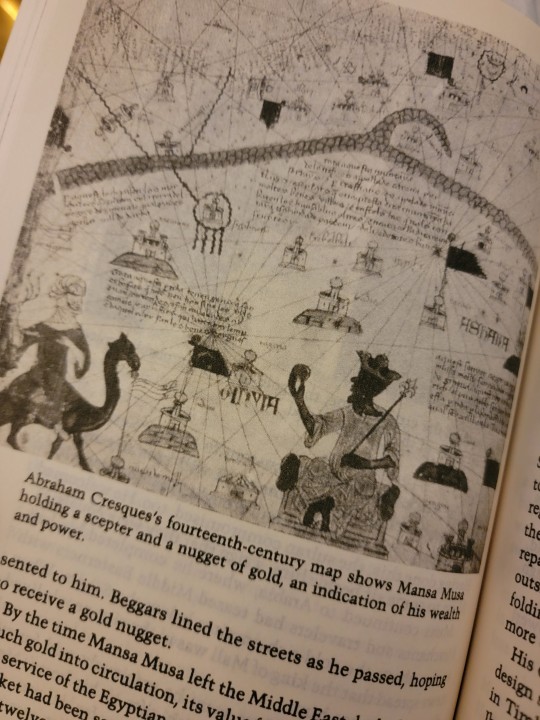

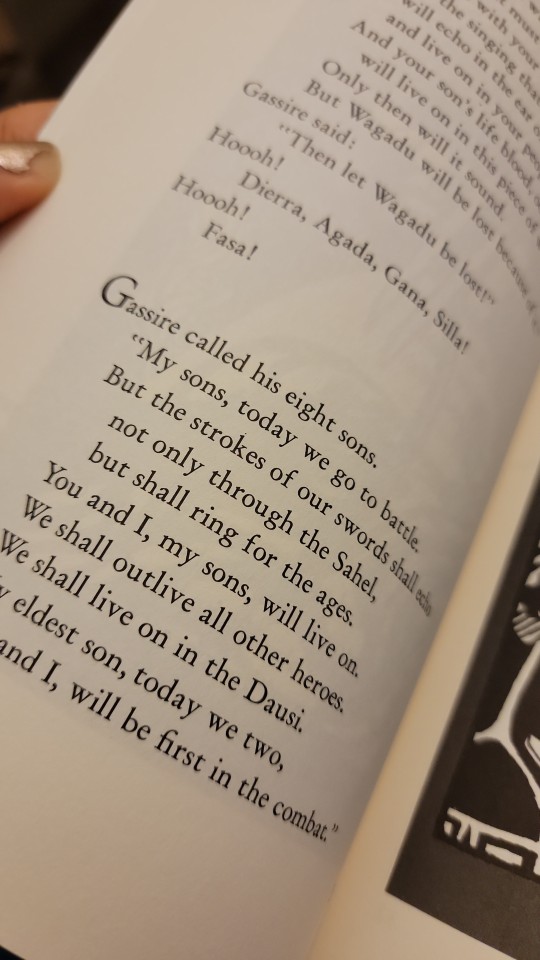


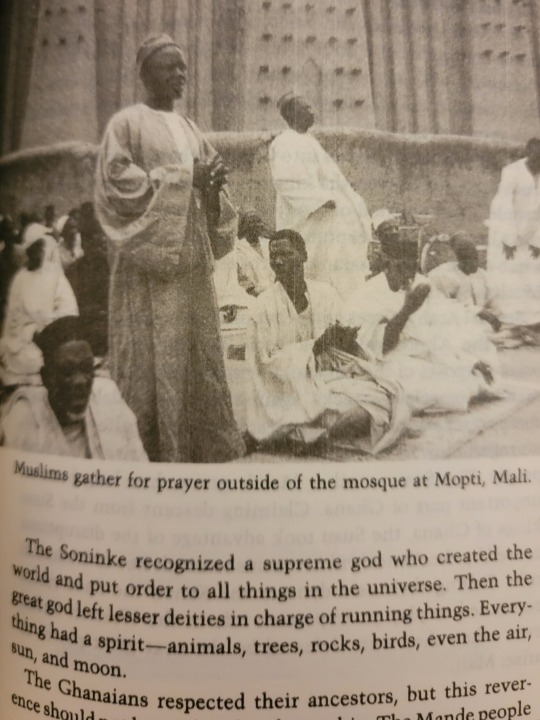


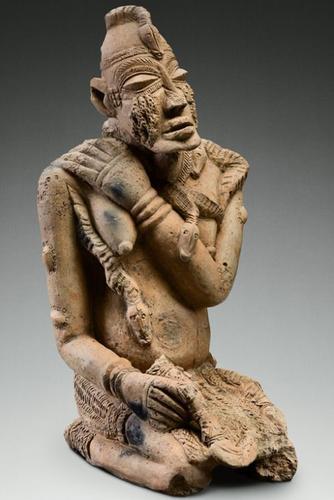
A sun that never sleeps
#sahelcore#mali#senegal#sahel#bambara#burkina faso#wolof#sahel aesthetic#soninke#gnawa#sahelian people#gassire#old ghana#wagadu#gnawa men#Spotify
0 notes
Video
SENBONO New Women's Smartwatch Lady 1.83inch Large Screen IP68 Waterproof Sport Watch Fitness Tracker Men Smart Watch Women
US $21.39
buy here now
#senbono #new #smartwatch #lady #large #screen #waterproof #sport #watch #fitness #tracker #men #smart #women #2022 #music #love #small #tech #women's #senegence #watches #scrambler #fashion #coaballers #girl #medium #technology
#smart watch women#senbono new smartwatch lady large screen waterproof sport watch fitness tracker men smart women 2022 music love small tech women's senegence
0 notes
Text

Looking for a gift for a man? 👨
How about skincare from SeneGence for Men?
Did you know that men’s skin is different than women’s? In fact, their skin is oilier, leaving them shinier and more prone to breakouts, and their hair follicle size is larger, so shaving daily can irritate skin and lead to more ingrown hairs and bumps. SeneGence for Men was designed with this in mind! Made with SenePlex+™ and beneficial natural ingredients, these products cleanse, balance, moisturize, and protect men’s skin. With the holidays right around the corner, this collection is the perfect gift for the guys on your list who deserve to be treated to a new skin care routine.
Shop Here: https://senesite.senegence.com/jeri/shopproducts/17/men
#senegence for men#fathersday#liquidmakeup#senegence#lipsense#jeri taylor-swade#getlips#jeritaylorswade#homebasedbusiness#makeup#senegenceinternational#lipboss#cuppawiththequeen#cuppa with the queen#cuppawiththequeenquotes#firstqueenofsenegence#direct selling#direct sales#shadowsense#mua#senegenceskincare#entrepreneur
0 notes
Text

She was called Phillis, because that was the name of the ship that brought her, and Wheatley, which was the name of the merchant who bought her. She was born in Senegal.
In Boston, the slave traders put her up for sale: “She's 7 years old! She will be a good mare!”
At thirteen, she was already writing poems in a language that was not her own. No one believed that she was the author. At the age of twenty, Phillis was questioned by a court of eighteen enlightened men in robes and wigs.
She had to recite passages from Virgil and Milton and some verses from the Bible, and she also had to vow that the poems she had composed were not copied. From a chair, she underwent her lengthy examination, until the court approved her: she was a woman, she was Black, she was enslaved, but she was a poet.
Phillis Wheatley was the first African-American writer to publish a book in the United States.
✍🏾: Black History Studies
433 notes
·
View notes
Text
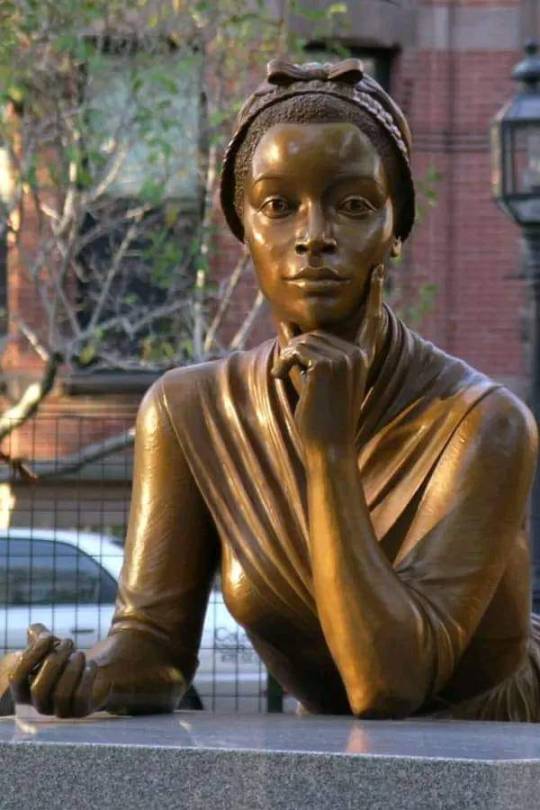
"She was called Phillis, because that was the name of the ship that brought her, and Wheatley, which was the name of the merchant who bought her. She was born in Senegal. In Boston, the slave traders put her up for sale:
-she's seven years old! She will be a good mare!
She was felt, n.aked, by many hands.
At thirteen, she was already writing poems in a language that was not her own. No one believed that she was the author. At the age of twenty, Phillis was questioned by a court of eighteen enlightened men in robes and wigs.
She had to recite texts from Virgil and Milton and some messages from the Bible, and she also had to swear that the poems she had written were not plagiarized. From a chair, she gave her long examination, until the court accepted her: she was a woman, she was Black, she was enslaved, but she was a poet. "
Phillis Wheatley, was the first African-American writer to publish a book in the United States.
I love stories like this
106 notes
·
View notes
Text
Thinking about the Holocaust in Africa.
Here, European notions of anti-Blackness and antisemitism became intertwined.
There was a fusion between the dispossession and racism of European imperialism and colonization projects of the late nineteenth century, and the prison regimes imposed by European fascism in the early twentieth century.
Scholars Sarah Abrevaya Stein and Aomar Boum have recently written much about the importance of recognizing the trauma of labor and internment camps in North Africa during the second world war.
And I want to express my gratitude for their work. I want to share some of what they’ve written in a couple of recent articles.
In their words: “Nazism in Europe was underlaid by an intricate matrix of racist, eugenicist and nationalist ideas. But the war – and the Holocaust – appears even more complex if historians take into account the racist and violent color wheel that spun in North Africa.” [1]
France's prison camps in North Africa were filled with Algerians, local Jews, deported European Jews, Eastern European refugees, domestic political dissidents from France, people fleeing fascist Spain, Moroccan residents, Senegalese subjects of French rule, other West Africans displaced by French occupation, and more.
The anti-Blackness and antisemitism that had fueled Europe's colonial expansion was finding new expression in fascist Europe.
---
Seems France is a central antagonist in the story of evolving approaches to empire, racism, and resource extraction.
After their 1940 alliance with the Nazis, the Vichy French government maintained technical control of French colonies across Africa. Beginning in 1940, the French government “alone built nearly 70 such camps in the Sahara.” [1] This was in addition to another six labor camps which the French government built in West Africa (in Senegal, Guinea, and Mali).
---
By the beginning of the twentieth century, French-influenced or -controlled territory in North Africa was home to around 500,000 Jews, many of whom had been living in the region for centuries or millennia, speaking many languages, “reflecting their many different cultures and ethnicities: Arabic, French, Tamazight – a Berber language – and Haketia, a form of Judeo-Spanish spoken in northern Morocco.” [1] The Vichy French government officially stripped North African Jews of formal citizenship and seized their assets.
Then, deporting residents of Europe and political dissidents in “early 1941, the Vichy authorities transferred hundreds of Jewish and non-Jewish refugees, including women and children, to the Saharan labor camps.” [2] Under French rule “in Algeria [...], it was estimated that 2,000-3,000 Jews were interned in camps [...] resulting in a total prisoner population of 15,000-20,000.” [2] France pursued an “unrealized dream of the nineteenth century” [2]: the completion of the Mediterranean-Niger railroad line in the Sahara, a transportation route across the vast desert to connect the prosperous West African port of Dakar with the Mediterranean coast of Algeria.
Meanwhile the “Vichy regime [...] continued racist policies begun by France’s Third Republic, which pushed young Black men from the empire into forced military service,” including forced recruitment from “Senegal, French Guinea, Ivory Coast, Niger and Mauritania; [...] Benin, Gambia and Burkina Faso; and Muslim men from Morocco and Algeria. In these ways, the French carried on a wartime campaign of anti-Blackness and Islamophobia, pairing these forms of racialized hatred from the colonial era with antisemitism. Antisemitism had deep roots in French and colonial history, but it found new force in the era of fascism.” [1]
---
In late 1942, during the Nazi occupation of Tunisia, the SS “imprisoned some 5,000 Jewish men in roughly 40 forced labor and detention camps on the front lines and in cities like Tunis.” [2] The fascist Italian government had been experimenting with racist and anti-Black policy in their colonization of East Africa; these policies were expanded in Libya. Here, “Mussolini ordered the Jews of Cyrenaica moved” as “most of the 2,600 Jews deported [...] were sent to the camp of Giado” while “other Libyan Jews were deported to the camps of Buqbuq and Sidi Azaz.” [2]
---
Stein and Boum describe the diversity of prisoner experience: “In these camps, [...] the complex racist logic of Nazism and fascism took vivid form. Muslims arrested for anti-colonial activities were pressed into back-breaking labor” and “broke bread with other forced workers” including ‘Ukrainians, Americans, Germans, Russian Jews and others [...] arrested, deported and imprisoned by the Vichy regime after fleeing Franco’s Spain. There were political enemies of the Vichy and Nazi regime too, including socialists, communists, union members [...] overseen by [...] forcibly recruited [...] Moroccan and Black Senegalese men, who were often little more than prisoners themselves.” [1]
As Stein and Boum describe it: “Vichy North Africa became a unique site [...] where colonialism and fascism co-existed and overlapped.” [2]
They write: “Together, we have spent a decade gathering the voices of the diverse peoples who endured World War II in North Africa, across lines of race, class, language and region. Their letters, diaries, memoirs, poetry and oral histories are both defiant and broken. They express both faith and despair. All in all, they understood themselves to be trapped in a monstrous machine of fascism, occupation, violence and racism.” [1]
---
[1]: Sarah Abrevaya Stein and Aomar Boum. “80 years ago, Nazi Germany occupied Tunisia - but North Africans’ experiences of World War II often go unheard.” The Conversation. 15 November 2022.
[2]: Sarah Arbevaya Stein and Aomar Boum. “Labor and Internment Camps in North Africa.” Holocaust Encyclopedia online. Last edited 13 May 2019.
560 notes
·
View notes
Text
Let’s talk about an other crime France committed.
In 1944 a group of Senegalese Tirailleurs (despite their names they were West Africans in general) is made prisoner by the Nazis. They eventually get liberated and France put them all in a military camp in Thiaroye in Senegal while wanting for them to be sent back to their respective countries. France has already been liberated so they started the whitewashing process of their troops by sending the Black and Brown soldiers back to Africa to replace them with white soldiers for the victory celebrations.
The men in Thiaroye refuse to leave the camp until they have been paid because previously France didn’t respect its promises so this time they want their money before leaving. France refuses. On November 28 a group of black soldiers decide to just sit there and refuse to move from the camp until they get paid. The military send the colonel Dagnan in the following days. The man still refuses to pay them and is unable to answer to their concerns regarding never getting paid if they do accept to leave. Dagnan leave and he decides that the solution is to “show strength”. On December 1st 1944 Dagnan send soldiers and cops. The black soldiers are awaken by the cops soldiers and the tank they got with them…. they are completely unarmed. No weapon. No violence on their part. They get slaughtered by the French. The lowest estimation says 50 men were killed.
Dagnan then makes a report in which he lies and accuses the Black soldiers of mutiny, trying to held him hostage and threatening his life. The 30 Black soldiers who survived are therefore arrested and condemned to up to 10 years in military jail and lose all rights to the money France owes them. The widows and children of the ones who were killed are not entitled to any compensation not even the money France owed to these men.
In 1947 the French president pardon them but he refuses to admit it’s because Dagnan lied so while they do get out of jail they are still not entitled to any money because of Dagnan’s lie.
To these days the official version in France is Dagnan’s version that the Black soldiers were violent and that they started shooting first that’s why they were killed. So while they didn’t deserve to be killed the wrongs are shared… to these days people think this massacre is up to debate.
28 notes
·
View notes
Text
Senegal on the left, Japan on the right.
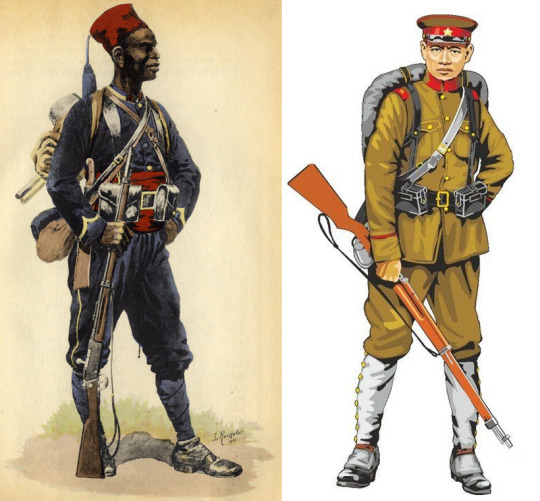
The Senegalese riflemen were the main component of the 'Black Army', as opposed to the 'Orient Army' or 'African Army' stationed in the colonies but mainly composed of white soldiers. About 200,000 of them fought in the First World War. Not all of them were from Senegal, but they were rather recruited from the entirety of sub-saharan Africa. Many villages in Africa were forced to send out a certain number of men, though the village chief often chose which ones would leave for service. The promise of a good pay, good food and French citizenship was one of the motivators for enlistment.
When the war broke out in 1914, Japan saw an excellent occasion to invade the German territories in the Pacific and defy their Navy. It contributed greatly to the war effort, by sending out medical battalions to the Western Front, helping the British army with suppressing the German forces, and even with shutting down Indian revolts. Eventually, it fulfilled a great deal of military orders for its allies which helped prosperity in the nation.

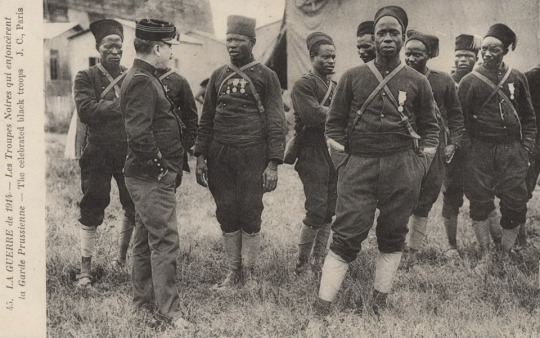
72 notes
·
View notes